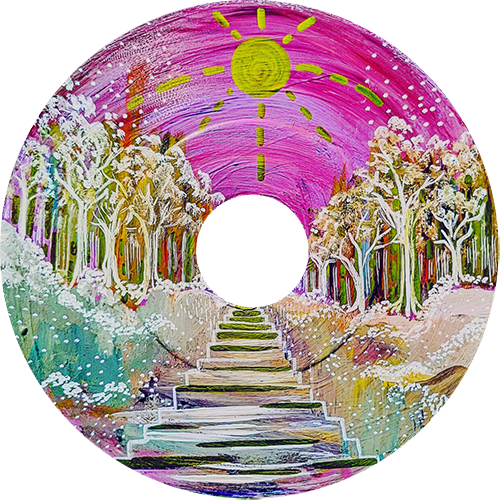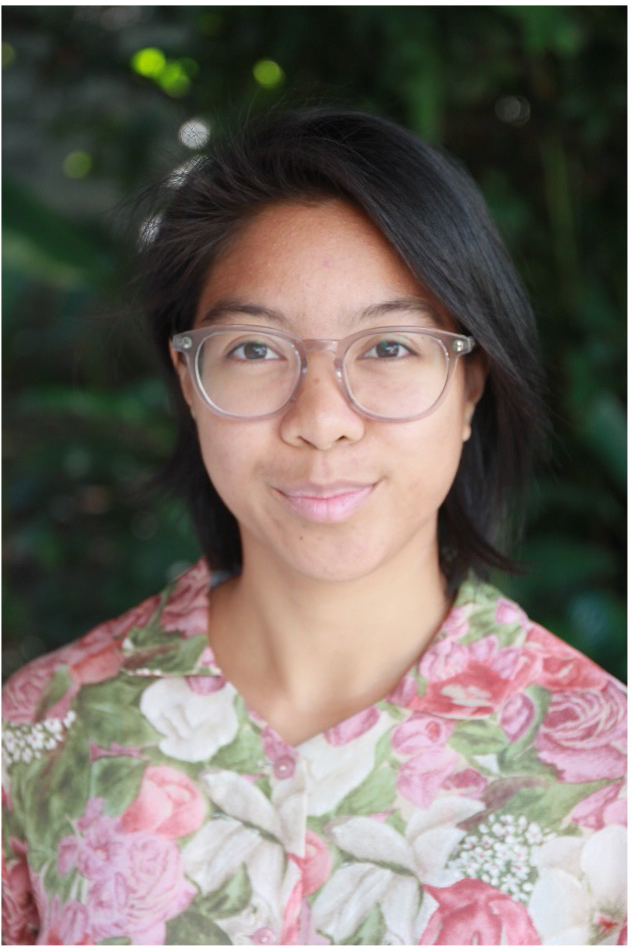In this Featured Member series, AATA celebrates the work of our members. During the coronavirus pandemic, we are inviting members to share their experiences about how their professional and personal lives have changed.
January 26, 2021
What has changed in your studies during the COVID-19 global crisis?
Having lived in the rural outskirts of southern Thailand to serve in The Peace Corps for two and a half years, the practice of social isolation, mask-wearing, and virtual communication was already normalized. With these habits already established in my lifestyle, transitioning to a hybrid educational structure in graduate school was familiar and comforting. The flexible scheduling, adapted coursework, and supportive faculty helped me work at a more efficient pace and process struggles regarding reverse culture shock and Covid-19. Whether learning took place in the classroom or at home, I learned a lot about the importance of both contexts. My industrious drive has propelled me to engage in research about cultural competency as well, and I hope to bring more awareness to respectful cultural appreciation in future work. Outside of school, my work as an online entrepreneur has evolved to support more people now than it ever did prior to pandemic circumstances.
As tumultuous as the current American sociopolitical contexts have been, they’ve illuminated societal issues that needed to be addressed, compelling me and my colleagues to take action. Technology-driven circumstances also emancipated us from the restrictions of on-site work and in-person challenges: alongside 50+ international artists, we created zines of artwork, poetry, narrative fiction, and research. Proceeds gained from our projects were donated to associated movements and charities like Black Lives Matter, The Trevor Project, and The National Suicide Prevention Hotline. Traction gained in the virtual world may come with technological difficulties and social disparities, but it has undoubtedly given us various ways to amplify social justice issues and promote equity in mental health.
In what ways have your clients been impacted by COVID-19? How are you managing your own stress related to their experiences?
The pandemic continues to provide invaluable experiences that strengthen the communities we work in. As a direct support professional, I work with individuals directly in their homes. With adult programs cut and non-profit organizations closed, the clients we work with have shown great resilience by adapting to their new home-centered lifestyles.
Fortunately, in-person therapy treatments have been maintained whenever possible, and without external volunteering or work, the individuals have surprisingly engaged in many personally fulfilling and expressive activities such as photography, cooking, and art-making. Every day is a new adventure, and seeing the individuals enjoy the simple things reminds us to be grateful for what we have. With the privilege of safely doodling with jumbo sized crayons or baking cookies, creative expression is facilitated while Covid-19 circumstances stands at the doorstep. However, it is false to assume that the pandemic does not affect any of us. The organization does its best to provide mandatory PPE, sanitation and sterilization equipment, and even thoughtful approaches to scheduling so that staff remains as safe as possible.
Still, cases of Covid-19 and death are inevitable. When the individuals’ families have been exposed, they cannot risk visiting their individuals, which has brought up mixed feelings of grief, anger, and sadness in their daily lives. When staff has been exposed, they needed to quarantine before coming back to work. One staff lost a loved one in December; and, because she and I are both night shift workers, I was mandated to complete her shifts—and worked up to 70 hours per week ever since then. I would not have persevered through these difficult times without my practices of self-healing art, Thai Theravada Buddhism-based meditation, and Indian Vedic-based yoga therapy.
Since the killing of George Floyd, the topic of race has once again been brought to the forefront of national dialogue. How have race related issues, social justice, and racism informed or impacted your work as an art therapist or studies as a student?
Race and social justice issues did not spontaneously come to the foreground. Whether implicit or explicit, the barriers have always been there: what matters is how we habitually choose to respond to them, and to what degree we decide to take action or remain complacent.
News media may accentuate polarities between groups and advertise extreme cases of behavior, but we cannot heal our communities without acknowledging the unique qualities that exist in our identities and how they affect us. It warrants the necessity of approaching one another with selfless compassion and cultivating environments of genuine patience, understanding, and shared responsibility.
My identity, work, and advocacy as a mental health professional is a direct extension of these challenges. Between completing service before Peace Corps’ global evacuation and moving “back home” to America, I became a destitute citizen stranded in the Philippines due to international border lockdowns. There, I was marginalized for not being a ‘real’ Filipino; and, once I made it to America, I was discriminated against for not being a ‘real’ American. Being born in America, carrying my parents’ legacy as descendants of the Filipino Diaspora, and living and working in several Southeast Asian and Pacific Islander countries has made my responsibility of re-examining my views of the concepts of race, ethnicity, and cultural misappropriation or appreciation even more crucial today. The circumstances will undoubtedly continue throughout my career, yet I am grateful for the progress that we’re making.
In graduate school, these circumstances helped me check personal biases, re-educate myself, and teach others about social disparities that affect us. In work, I developed a multi-faceted view of the social justice issues at hand to advocate for social amends that support the individuals we work with. I hope that this will inspire future generations to empower themselves and advance the work that we started.
In what ways has your living or work space changed?
As an essential worker, I do my best to follow all protocols regarding Covid-19. My loved ones hoped that I would come back to California for the holidays, but with strict quarantine guidelines and testing required, it was safer to stay put. Here on the east coast, I immediately shower, launder my clothes, and self-isolate when I come home from work. My roommate I share a rental house with is an immune-compromised childhood cancer survivor, and it would be difficult to forgive myself if I was careless enough to infect her with Covid-19, let alone travel across state lines and potentially endanger millions of others for selfish privileges.
How do you view your role as an art therapy student during COVID-19?
In isolation, music and art have been inseparable to me. A collection of vinyl records has become my journal, as I listen to one and paint one every single day. It helps me cultivate mindful appreciation for what we have achieved as a society in the past, what we are living through today, and what we are working towards for the future. As a student, my role is to be a sponge. Like a child who is eager to ask questions, I remain observant to learn as much as I can about creative healing. Like a sun bursting with energy, I remain vigilant to actively advocate for human rights. Like a blade of grass, I remain adaptive to the winds of Covid-19 changes with integrity. And, like a sponge, I remain willing to let go of these pressures at any given moment – and hopefully welcome a new reality of justice and peace.
Is there anything else you would like to add?
I became a Student Member+ in AATA to connect with others and expand upon studies of inclusion. Our cultural single stories cannot be ignored when people like myself hold the great simultaneous demands of taking care of ourselves, teaching others about our experiences, and advocating for equity as multicultural individuals. AATA plays a pivotal role in connecting us with professionals who have navigated these identities from an origin of respect and humility; providing additional books, articles, and resources that support open-minded awareness; and discussing live policies and discrepancies to create changes towards a better future. Moving forward, our inner circles need to create more proactive movements instead of reactive ones – and hold members accountable for the professional, academic, and societal cultures that we create or maintain.

“Step by Step” by Ashley Abigail Gruezo Resurreccion. Acrylic Paint on Vinyl Record. December 2020.
I want the intersectionality of my soul to be unconditionally regarded, and for our unequal walls to be dismantled, so that we may live within a place of healing rather than dissonance.
Ashley Abigail Gruezo Resurreccion
 I am a Filipina Asian-American, certified 200-Hour Yoga Teacher, and Returned United States Peace Corps Volunteer (Thailand 130) who graduated from California State University, Northridge with a BA in Psychology and minors in Sociology, Child Development, and Art. My previous work promoted mental wellness and educational sustainability through facilitations with The International Child Advocacy Network, Paintbrush Diplomacy, Darien Book Aid, and Self-Discovery Through Art.
I am a Filipina Asian-American, certified 200-Hour Yoga Teacher, and Returned United States Peace Corps Volunteer (Thailand 130) who graduated from California State University, Northridge with a BA in Psychology and minors in Sociology, Child Development, and Art. My previous work promoted mental wellness and educational sustainability through facilitations with The International Child Advocacy Network, Paintbrush Diplomacy, Darien Book Aid, and Self-Discovery Through Art.
Art therapy is my instrument for healing the weights of our cultural somatics and empowering the future leaders of our field. I use it in my roles as an essential direct support professional, art and yoga teacher, and freelance zinester to support Asian, Asian-American, and LGBTQIA2S+ populations. Studying to earn a Master of Arts in Art Therapy with a Specialization in Counseling at Seton Hill University, I hope to someday construct my own creative meditation center that honors culturally appropriate Asian and Asian-American inspired artmaking, spiritual and mindful practices, and yoga techniques.
